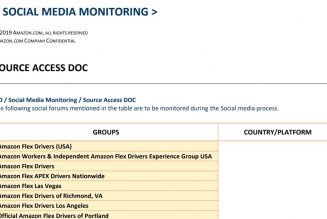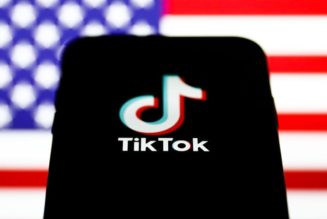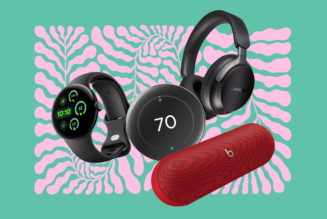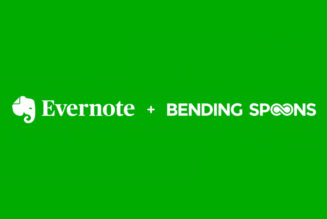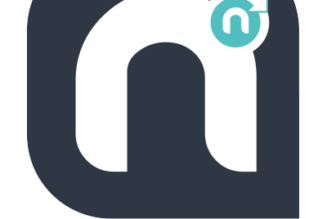Plus, Microsoft makes some big leaps in audio AI.
:format(webp)/cdn.vox-cdn.com/uploads/chorus_asset/file/23954045/VRG_Illo_STK427_K_Radtke_Getty_Mics_2.jpg)
This is Hot Pod, The Verge’s newsletter about podcasting and the audio industry. Sign up here for more.
Hope you all had a great weekend. I don’t have any podcast thoughts today, but I did see the Roundabout Theater’s gender-reversed 1776, and it absolutely slapped. As my friend Olivia said, 1776 was made as propaganda and has no business being as good as it is (it’s also more clear-eyed about American politics than Hamilton, but I digress). Plus, the movie version has Mr. Feeny as John Adams — what a gift.
Anywho, on the docket today: Apple makes it easier for podcasters to deliver the goods to their subscribers, Microsoft is making leaps in the text-to-speech AI space, and we have some exciting Hot Pod Summit news!
Announcing Hot Pod Summit Brooklyn 🎤
It’s that time of year again, gang: Hot Pod Summit is coming back to the Wythe Hotel in Brooklyn on February 23rd. We will have more details soon, but we will be switching it up a bit this time around. In addition to panels with experts from across the industry, the Summit will feature new interactive programming, so stay tuned!
As always, the event will be invitation-only. Guests will receive invites by email with the ticket purchase code by the end of the week. And if you do not get an invite right away, don’t despair! You can apply for an invitation through our ticket lottery at the On Air Fest website.
On that note, Hot Pod Summit Brooklyn is being held in association with On Air Fest 2023, which will take place February 23rd–25th. On Air Fest has some cool programming lined up, featuring On Being with Krista Tippett, People’s Party with Talib Kweli, a live podcast penthouse, networking breakfasts, parties, and more. The event will also feature On Air: The Podcast Experience, an immersive podcast exhibition from the world of My Favorite Murder and the Exactly Right Network, On Being Project, The Heart, and more. The exhibit will run from February 23rd–26th, and tickets are available at experiencepodcasts.com.
Apple (finally) makes it easier to distribute subscription podcasts
Last May, Apple announced that it would launch delegated delivery for subscription podcasts in the fall. It missed that goal by a few weeks, but delegated delivery is now live for several podcast hosting platforms, with more to come.
The feature allows creators with subscription shows to distribute episodes directly from their host dashboards instead of having to manually upload the content through Apple Podcast Connect. Participating hosts for now include Libsyn, Blubrry, Omny Studio, and RSS.com, with other popular platforms like Buzzsprout and Acast to be added later. Anchor, the biggest distributor of podcasts (and a subsidiary of Spotify), is not part of the initial batch of hosting providers.
What are subscribers willing to pay for?
Speaking of podcast subscriptions, Cumulus and Signal Hill released a report that gives some insight into what (if anything) will compel listeners to pay for podcasts. Unsurprisingly, the answer is more content (always more content! Feed the beast!).
Among weekly podcast listeners, 36 percent said they would pay a monthly fee for bonus episodes of one of their shows. Other perks that ranked well were access to extended episodes (32 percent), early access to episodes (30 percent), and behind-the-scenes content (28 percent). What do they not care about? Exclusive merch (22 percent) and transcripts (13 percent).
While that is still a fraction of regular podcast listeners who are willing to pay anything at all, it does show that there is some validity to the strategies creators are using to shore up subscriptions. Patreon creators use bonus episodes as the cornerstone of their memberships, while Wondery has leaned heavily into the early-release model for shows like My Favorite Murder and SmartLess.
Microsoft makes some (slightly alarming?) advances in text-to-speech AI
Last week, I wrote about how Apple is using pretty advanced text-to-speech technology to facilitate the production and distribution of audiobooks. So far, that feature includes four AI voices. Microsoft, meanwhile, announced a text-to-speech model called VALL-E that can allegedly simulate anyone’s voice with just a three-second sample.
If it works, that could have big implications for the audio industry. There are definitely upsides — improved text-to-speech could vastly improve accessibility for people with visual impairment and, like in the Apple Books case, make audio content creation easier overall. But it is also easy to imagine how things could go off the rails in a big way, with podcasts featuring “guests” who aren’t really there and deep fakes that are hard to combat. That could especially be a problem while the industry figures out how to moderate content.
That is all for now! See you next week.


